Creating economic science

As for industrial capitalism, technical advances, agility and uniformity in obtaining and disseminating products and the breadth of their uses must be taken into account. In order to address the problem of surpluses, the need for new markets and commercial means of transport was raised. The financial organization changed radically. So the change was huge. So great that it can be said that it was a revolution. In this revolution the growing forces of production exposed the obstacles of the free exchange system. This, along with the production surplus, helped set in motion state protection against workers' unemployment.
Also in agriculture capitalism had its consequences. In some countries, such as England, this field was industrialized. Thus, European agriculture traditionally linked to old forms evolved: the improvement of tools, new fertilizers, choice of seeds, new machines, antiritant media, etc. A long etcetera represented a real breakthrough in this field.
Regarding the third point mentioned, the genesis of the proletariat is linked to the growth of the population in Europe, and it is evident that the latter and the development of great capitalism are fully related. Proletariat (i.e., group of workers with exclusive dedication), XVIII. Known in the nineteenth century as a social class integrated in the life of peoples. It took place in the 20th century. Realization of a massive and industrial proletariat. While the goods were mostly in the hands of a few, beside them there was a famine of people that burdened the interests of industrial production. In this enormous economic inequality between employers and workers the first steps of a theory of reasoning and understanding of the situation, the theory of economics, were taken.
Precursors of the political economy

Despite belonging to a different epoch, in the ancestors of the current political economy we must quote William Petty (1632-1687). He wrote many different books, but in this subject we have to cite the so-called “Treatise of taxes and contributions” and “Political arithmetics”. Petty was a supporter of experimental sciences and with the help of Locke and Hobbes worked hard on the creation of the “Royal Society”.
The tests carried out in the economic field show a fondness for his essays and worried about the objectivity of the consequences of the phenomena. However, Petty's modernity is mainly focused on the research of the sources of work. Petty said the concept of value could be considered as the abstract result of human action.
However, the equivalence that can be established between the work/value binomial is the real value of the goods. According to Petty's thought, the market price does not indicate a concrete equality, which can mean an accumulation of capital. In short, Petty explained that the difference between the cost of leased work and the value of the product was for the benefit of the capitalist. It is true that everything Petty did was related to agriculture, she in the XVII. He lived in the 19th century, but published for the first time the paths of his theory, which would then be used in the realm of the general economy.
The research areas treated by Petty were not immediately considered, but the new economic activities that came provoked an atmosphere of rationalization. Petty wanted to impose the ability to regulate economic phenomena through objective laws and, although he did not succeed, made it clear that this was the way.

But this new field of research was as broad as it was complicated. However, things moved forward. The first steps of this new science, the technical changes in industry and the economic and political superiority of capitalism were no coincidence that it appeared at the same time and place. After Smith assumed Petty's hypotheses about the value of agricultural enterprises, he updated, summarized and adapted them, but now it would be based on industrial society and not on agrarian society.
Adam Smith
Adam Smith (1723-1790) after studying at the universities of Glasgow and Oxford made many trips. After his stay in Paris, he returned to Glasgow where he obtained the chair of moral philosophy. His works highlight the “Theory of moral sentiments”, published in 1759. She opposes Hume's skepticism. According to this, it was thought that knowledge cannot access metaphysical truth, that is, that the inner beliefs of man are neither verifiable nor disligible, rose up against this Smith. Considering that in all human beings there was a logic, thinking and working on the results obtained through empirical observations of reality, he went ahead.
The moral image of the world or the ideas of optimistic moral philosophy led Smith's thought to the values of the new economic situation. This new stage of his life is the work entitled “An inquiry into the nature and causes of the wealth of nations”, published in 1776. According to one writer, “In addition to the empirical research of economic reality, the work is based on the following ethical-theological consideration, and if one does not take into account the spirit of the writing one cannot understand: the wills propel man, but when he acts “economically”, that is, for his benefit, a hand that is not seen pushes towards an objective that was not initially intended, but for the benefit of the whole society”.
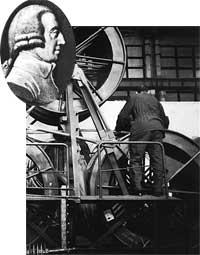
Therefore, according to Smith, the nature and causes of wealth are built upon free exchange. This book begins with research into the division of labor. He believes that division of labour is a natural consequence of exchange. For some, Smith confuses cause and effect by considering the relations of the capitalist system natural. However, apart from this debate, he was able to clarify the result of the product of the work, classifying it as use value and exchange value. Smith therefore first raised the problem of “natural” for good.
The reflections on Smith's natural price are of great importance. He knew that prices vary according to times and places, but considered it appropriate to put a universal and objective unit of measurement. When he set out to search for this unity, he realized that it must be in accordance with the conditions of society, that is, whether it was advanced or delayed. In the second case, to find the exchange value of the subject, only the work necessary to achieve it had to be taken into account. In the first, however, he realized that other productive factors had to be considered and that in both cases time had to be always valued. Therefore, although Smith did not find the resolution of the problem launched, he made clear the need to indicate where the capital accumulation proceeds or is realized.
Smith justified the accumulation of capital considering that the equivalence between value and labor only occurs in the primitive “initial” society. In civilized society, however, wealth and poverty do not depend on what one can work, but on the buying power of labor.
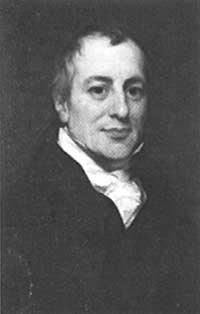
Somehow, Smith already published the succession of the proletariat. On this point he writes: “After the accumulation of capital in the hands of special people, some of them use it in a natural way to give work to the staff, appropriate raw materials and livelihoods and benefit from the sale of the product obtained or from what the work done has “added” to the value of the raw material.” Therefore, Smith saw the concept of “surplus value,” but he called it “added amount,” that is, anticipated capital yield, which allows workers to pay wages and acquire raw materials. Smith, through the expression of added value, gave an expression of the same value, which would then be of great importance.
Another topic this researcher analyzed was production. This must be considered entirely logical in the society that was being industrialized. In this matter he demonstrated: “A job is fruitful only if it brings value.”
Despite having many holes in Smith's works, he put many things on the table for the first time. Among other things, we have the level it gave to the capitalist class. For him this class had to be the first in society and politics, because it was a hegemonic force. On the other hand, he strongly criticized servitude and, with forceful arguments, shook a certain type of medieval slavery that was still enduring.
We can say that Smith's work closes the first stage. Awareness of economic concern appears for the first time. Let us remember then that in England the first machines were being installed and that it was the beginning of the workers' movement, while in France the socialist ideology was being published.
David Ricardo
He was born in London in 1772 and died in 1823 as a son of the Jewish family from Portugal. Following his father's advice, after plunging into the world of finance and earning a lot of money, he began researching economics. Ricardo wrote several papers, but among them the most prestigious is “The principles of political economy and taxations”.
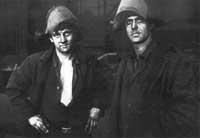
The results obtained by Ricardo are much more scientific than those of his predecessors. Concerned about the concept of value, he based economic research. Moreover, in the formulation of analytical-economic phenomena he put the role of value scientifically in the sphere of capital and claimed the reality of three factors: “the result and the work of the land, all that comes from the surface through the machine and capital, is a social division into three parts: capitalists, peasants and proletariat.”
When Ricardo dealt with value, he used the distinction between the use value and the exchange value, and to round it he established the concept of “market”. According to Ricardo, work, both
present and past, is the only one that sets value. Therefore, for him the problem of salary was very important. In his opinion, the wage increase did not imply an increase in value and showed it for solid reasons. Wages did not affect intrinsic value or price, but yield. That is, when distributing the value, if the salary is higher the yield is lower and vice versa. Continuing with the theme of profit, for him social support was only profit.
In Ricardo's theory the value of the commodity is the work necessary to achieve it. Therefore, if the work has a natural price, that is, the merchandise necessary for the permanence of the worker and his family. In short, by establishing the equivalence between work and value, he expressed the differences between natural wages and real wages.
Another concept that Ricardo studied is that of “income”. But on this he had only a partial vision. At that time and in the society he knew, the landlords wanted the price of grain to be higher and the capitalists wanted it to decrease. Therefore, the capitalists wanted to open that market against the interests of the landlords. Within this framework is framed the research on Ricardo's income and for this reason we have said that he only had a partial vision.
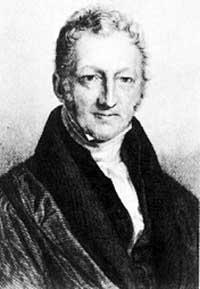
Ricardo's last chapter is devoted to industrial machinism. Ricardo knew the machining of the work and was the first great strike he generated. But since that social phenomenon was new, it was not properly investigated. For Smith's followers that was ephemeral. At first Ricardo also had that opinion and, even more so, took into account the advances of innovations. He tried to show that machinism meant capital savings.
Consequently, due to the price reduction, the proletariat could benefit from greater purchasing power. Finally, the accumulated capital, through the possibility of reinvesting, would generate new jobs. These conclusions come from the first edition of his book, but after knowing the true life of the proletariat he had to change them. Marx underlines this change and what it means. However, despite a deeper analysis of this problem and the possible consequences of this imbalance (not only within society but also at the national level), he did not worry about finding solutions. He just tried to describe reality from his level of wealth to very cold.
The influence of Ricardo's work was enormous. Its conclusions and the scientific bases established to achieve them not only raised the need to analyze the economic problems, but put the solid and solid pillars of economic science.
The ethical problem of the economy
Through created capitalism, it represented a profound change in the situation of European economic life and with it in the new society. On the one hand, the expansion of colonialism, on the other, the increase of the population and, finally, the congestion in the cities of the crowd. Therefore, we should not be surprised that some people have analyzed all this from an ethical point of view. Smith was optimistic about this problem, but Ricardo saw the social conflict clear. Therefore, there were opinions of all tastes. Seeing the two classes in society (those they had and those they did not have), while some defended millionaires, others tended upside down.
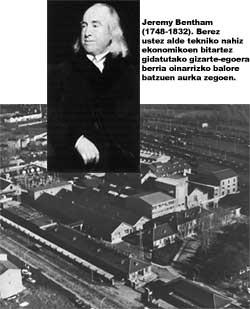
One of the first is Malthus (1766-1834). This was an Anglican pastor. In 1798 he published an untitled pamphlet which was later known as “Essay on the principle of population as it effects the future improvement of society”.
In it he cares about the growth of the population and considers that this goes according to the geometric progression. Therefore, demographic control is necessary. So far, and even though his conclusions do not have a solid scientific basis, condemnation. It seems that reality gives him reason. But all this to defend the attitude of the powerful.
He said: “Anyone born in this world of private property has no right to be preserved without the means of subsistence granted to him by both his parents and his work. Actually, in this world it is vague. On the big table of nature has no dishes waiting for you. Nature promises to flee and soon fulfills these orders.” Of course, Marx strongly criticized Malthus's attitude, but his demographic ideas have influenced our society.
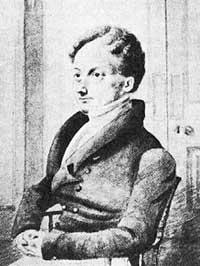
In this field of ethical vision of the aforementioned economic problems, it is worth mentioning Jeremy Bentham (1748-1832). In his opinion, the new social situation, directed through technical and economic aspects, was against basic values. After analyzing the new situation, he concluded that the initial agreement did not imply the stability of the way of life, that is, that society, in order to live together, had passed laws whose duration did not imply for itself the welfare of society, but on the contrary. Therefore, I thought that to have more well-being in the new situation, that is, “more happiness for more friends”, adjustments would have to be made.
Another name to highlight in this line is James Mill (1773-1836). This was the father of philosophical empiricism Stuart Mill. This made the principles established by Bentham more scientific and gave a social expression (and not of evasion) to social usability. That is, what until his time was only ethical, made it something that could be touched. Mill came to ethical materialism, where he showed his autonomy.
In this beginning of the economy we should now bring Karl Marx, but despite being an economist, his work influenced a much broader sociological field. Therefore, his work is investigated in this other section.





